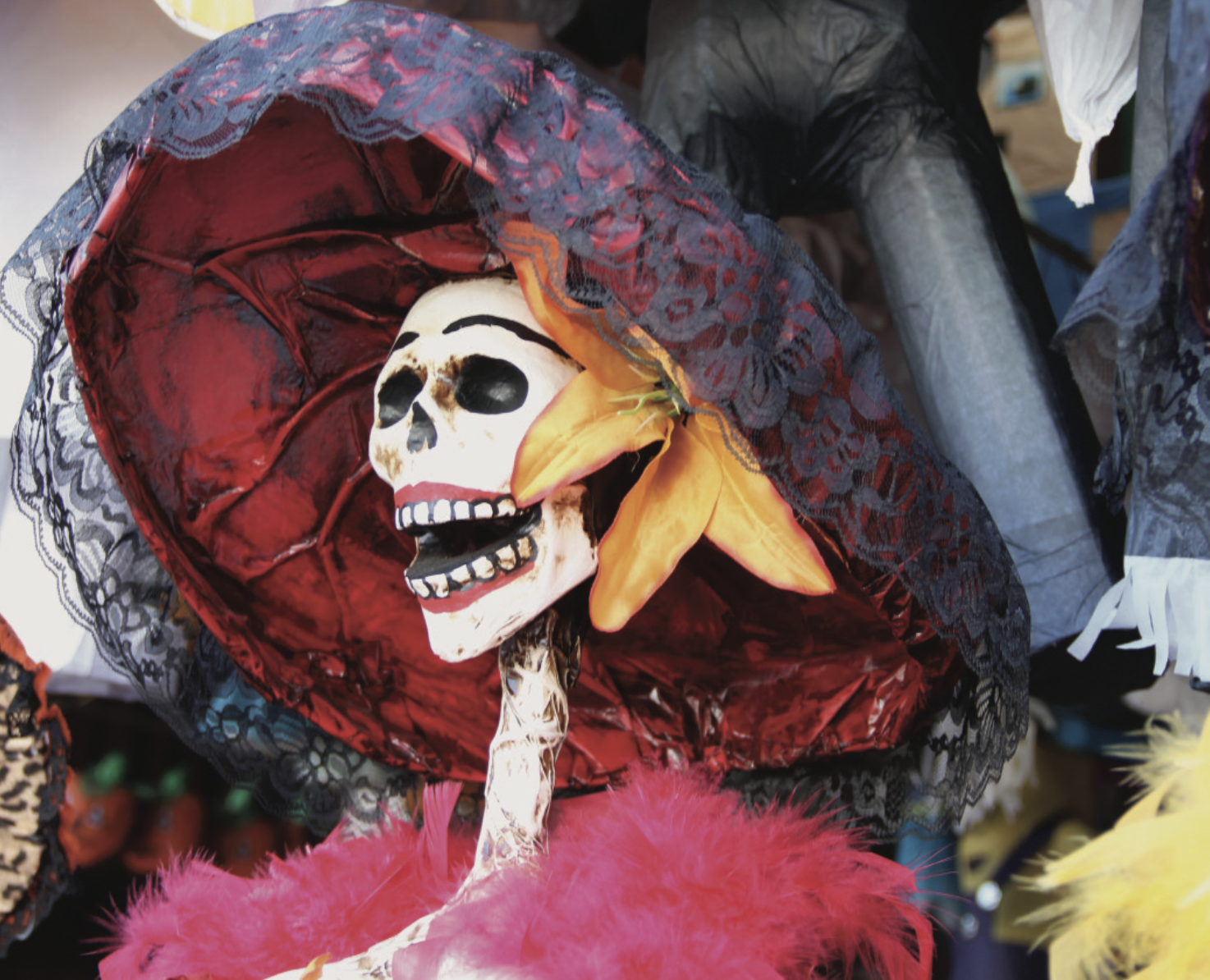Día de Los Muertos: A Day to Honor the Dead
Last Thursday, Dean-Eaton’s formal lounge was transformed into a display of vibrant beauty, adorned with the golden hues of marigolds, an altar featuring photographs of those who have passed on, and colorful papel picado hanging from the ceiling. More than 100 people, including students, faculty and residents of Canton, New York, attended the Day of the Dead or Día de los Muertos celebration. A diverse range of activities included the recitation of Calaveras Literarias, a type of humorous Mexican poetry, a performance by the Laurentian singers, and a presentation about “Los 43” by students from the course Clinic: The Effects of Neoliberalism on Human Rights.
On the second of November every year, Mexico and the diaspora worldwide celebrate the Day of the Dead. It is a time to honor and remember those who have passed away. “For me, it is a day where you can feel close to your deceased relatives,” Sisco Tellez ’25 said. “Traditionally, it’s supposed to mean the connection of the two worlds, you know. It’s a time where instead of feeling pity for our deceased ones, we feel close to them; it’s an opportunity to feel like they’re here still.”
While most years, the celebration on campus is similar, one of the main differences is the way the altars are set up. “This year, we had altars for ‘The 43’ about the students who went missing in Iguala Guerrero,” said Berenice Gervacio, ’25, a student speaker at the event. “I also wanted to create an altar and the space for what’s happening in Palestine and around injustices that are happening around the world like Congo, Sudan and other countries.”
“The Day of the Dead has always been for social critique. It was almost like a social movement, with social impact,” said Professor Martha Chew-Sanchez, co-coordinator of the Caribbean Latin American and Latino Studies Program and organizer of the event since she came to SLU 21 years ago.
Professor Chew-Sanchez tries to include, as much as possible, students from the countries where they celebrate the Day of the Dead, mainly from Mexico. “So many students are very much into it, just like me. They have the need to celebrate, and it’s like a spiritual hunger,” Chew-Sanchez said. “The diaspora has these needs of recreating home away from home, and so they are very enthusiastic about sharing, even without any PowerPoint or anything, just sharing exactly what it is like for them.”
Along with being a time for the community to come together, Day of the Dead is also a family celebration. “It has many layers,” said Ix-Nic Iruegas, Executive Director of the Mexican Cultural Institute in Washington D.C. “The most important one is that it is a family affair. And it’s something that we do together with our families; we set up little ofrendas or altars in our homes, on the small corner; they’re usually not very large.”
“When I can, I try to share the tradition with people that are not familiar with it and try to celebrate also not only my loved ones but their loved ones,” said Valeria Obregón ’24. She grew up putting an altar in her house every year to remember her grandparents and loved ones, and now gets to share her traditions on campus. “The most beautiful part is that death is not something scary, something bad, something evil, as we tend to associate it. It is something very happy. Giving it a positive spin is something really nice that I like to bring to campus and to different places.”
Olga Sanchez Saltveit, Artistic Director Emerita for Milagro, the Pacific Northwest’s premier Latinx arts & culture organization, highlights the importance of celebrating cultural events. “Ethnic communities of all kinds, there’s a bit of marginalization, right? We’re kind of, you know, on the fringes, so when we can be in the center, and we can be in the center beautifully, then suddenly, we shine,” Sanchez said. “It gives us a sense of pride and a sense of belonging to a good thing. It represents the best of us.”
The Day of the Dead, while still important, is a starting point for more cultural events, according to Javier Muñoz-Díaz, Professor at the World Languages, Cultures, and Media Department. “There are a lot of things that we can showcase about Mexican, Latin American, Chicanx culture,” Muñoz-Díaz said. “Having a strong event is important, but as a platform to do more stuff. To showcase not only a specific cultural event but other aspects of Latinx culture.”



